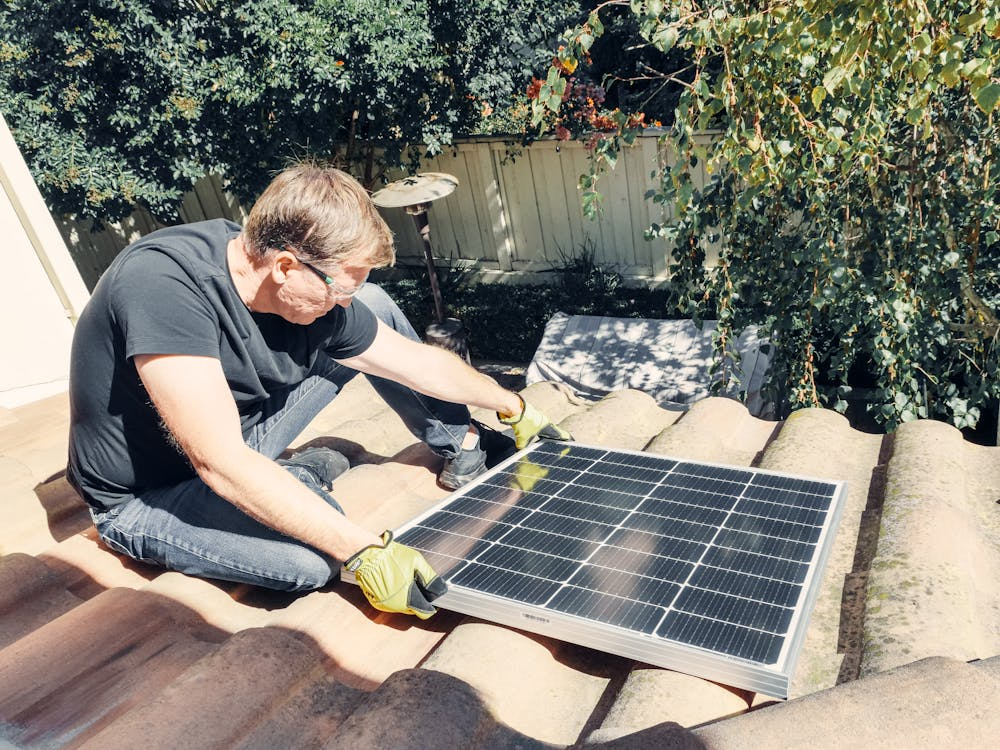Installing solar panels is one of the best decisions for homeowners wanting to save money on energy in the long run. While there’s an upfront cost, the financial benefits stretch for decades, making solar panels a solid choice to invest in energy efficiency. When you install solar panels, you’re not just making an eco-friendly decision; you’re also setting yourself up for long-term savings. The article below breaks down everything you need to know about how solar panels provide ongoing financial advantages.
Initial Costs of Solar Panel Installation
The upfront cost of solar panels can seem high, but it varies based on system size, equipment, and installer. On average, homeowners can expect to pay several thousand dollars, covering materials, permits, and installation fees. Many installers offer financing options, such as solar loans or leasing options, to help manage these costs. Additionally, solar panels typically come with warranties that cover up to 25 years, meaning you’re protected against most expenses after the initial setup. Despite the price tag, solar panels pay off, making them an excellent investment.
Financial Incentives and Tax Benefits for Solar Panel Owners
There are several government incentives designed to encourage solar panel adoption, including the reduction of VAT on installation costs. These incentives mean that solar panels can actually cost less than expected, pushing the return on investment even faster. By taking advantage of these programs, homeowners can significantly cut the costs of solar panels while increasing their savings over time.
Reduction in Monthly Electricity Bills
One of the biggest benefits of solar panels is the reduction in monthly electricity bills. As solar panels convert sunlight into electricity, homeowners can rely less on the grid, reducing their energy bills. Many utility companies also offer net metering programs, which allow you to sell excess energy back to the grid. In effect, solar panels can help eliminate electricity costs, creating a consistent source of savings each month, which adds up over the years to thousands in savings.
Breaking Even on Solar Panel Investment
The break-even point for solar panels is typically between 6 to 10 years, depending on electricity rates and sunlight exposure. Once this point is reached, the system essentially pays for itself, and any savings after that are pure profit. Homeowners in areas with higher electricity costs or more sunshine often reach the break-even point faster. Overall, solar panels are a long-term investment with a high rate of return, and the potential for savings only grows after the break-even point is reached.
Cumulative Savings Over 10, 20, and 30 Years
Over time, solar panels deliver significant savings, especially as electricity rates continue to rise. In the first 10 years alone, homeowners may save thousands of dollars, and by 20 or 30 years, those savings can more than double. For example, some studies show that solar panels can save homeowners over £25,000 over 25 years. As energy prices increase, the savings from solar panels grow, making them an attractive option for anyone planning for long-term savings.
Increased Property Value Due to Solar Panels
Installing solar panels often increases a home’s market value, as energy-efficient homes are highly appealing to buyers. Research shows that properties with solar panels can sell for up to 4-5% more than similar homes without them. In areas where electricity costs are high, the value increase can be even more substantial. With solar panels enhancing both savings and property value, homeowners gain financial benefits even if they decide to sell their homes in the future.
Maintenance and Upkeep Costs
Solar panels require minimal upkeep, with occasional cleaning and check-ups to ensure they operate efficiently. Annual maintenance costs are usually low, especially compared to other home systems. Most solar panels come with warranties that cover repairs or replacements, keeping maintenance costs minimal over the long run. Given their durability and low upkeep, solar panels are a cost-effective choice, adding to the overall financial advantages.
Savings with Battery Storage for Solar Panels
Adding battery storage to solar panels increases savings potential by storing excess power generated during the day for use at night or during power outages. This setup allows for even more savings by reducing dependency on the grid and maximising energy independence. Solar panels paired with batteries make the entire system more reliable, ensuring homeowners can maximise the energy they produce and boost overall savings.
Environmental Impact and Its Financial Implications
By reducing reliance on fossil fuels, solar panels help lower carbon emissions, contributing to a healthier planet. Some regions even offer incentives for reducing emissions, which can further offset solar panel costs. These environmental benefits can lead to financial gains, as governments promote renewable energy use and reduce carbon taxes. Solar panels provide long-term environmental and financial savings, making them an ideal choice for eco-conscious homeowners.
Final Thoughts
The financial and environmental benefits of solar panels make them a wise investment for homeowners looking to reduce costs over time. From lower monthly electricity bills to tax incentives, property value increases, and overall savings, solar panels offer a wealth of advantages that go beyond initial costs. The potential for cumulative savings over the years is enormous, especially as energy prices continue to rise. With minimal maintenance and long warranties, solar panels not only pay for themselves but also contribute to a cleaner, more sustainable future. For homeowners seeking financial security and a greener planet, solar panels are the clear choice.
